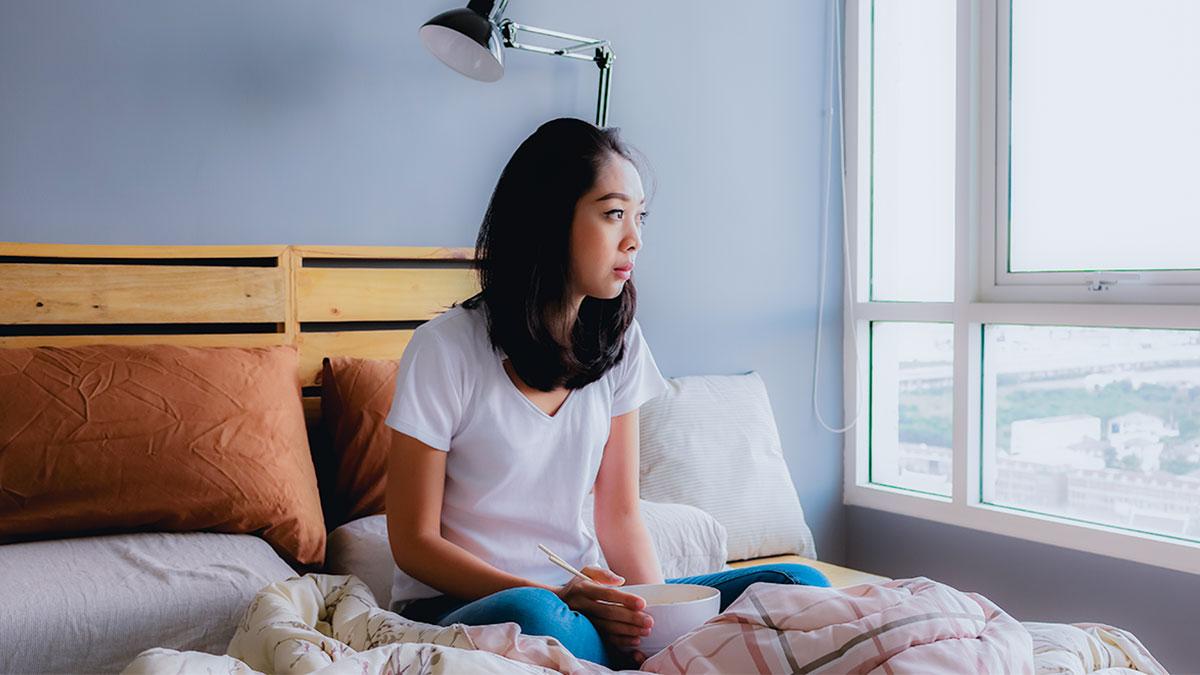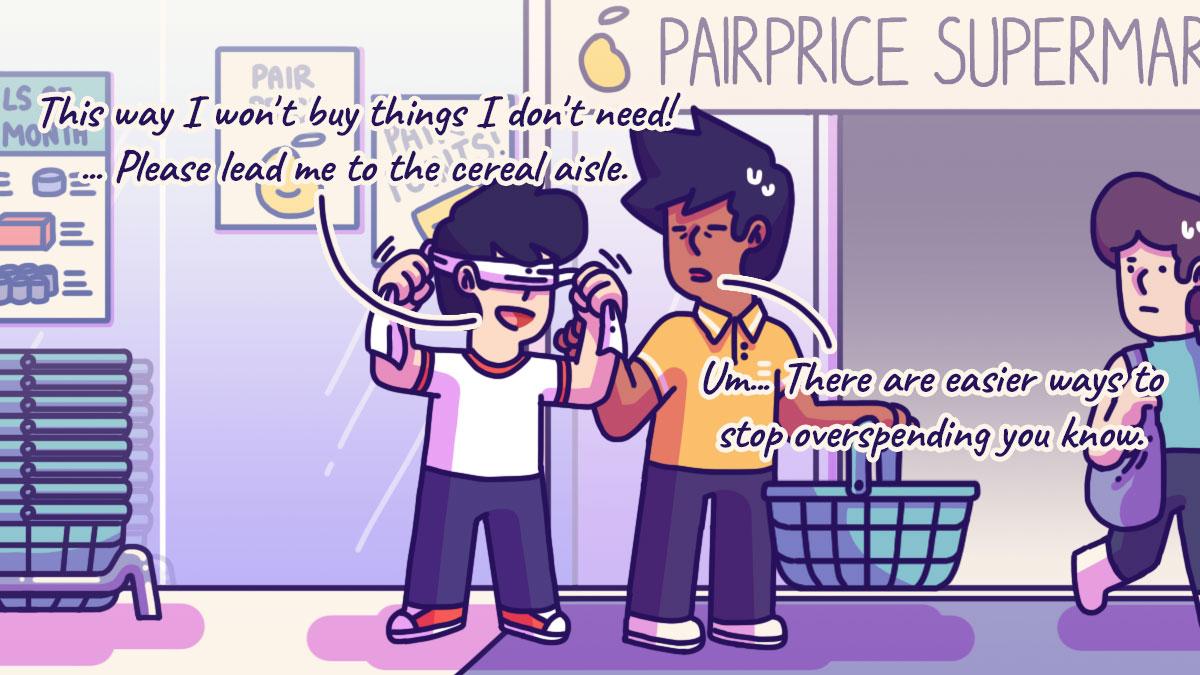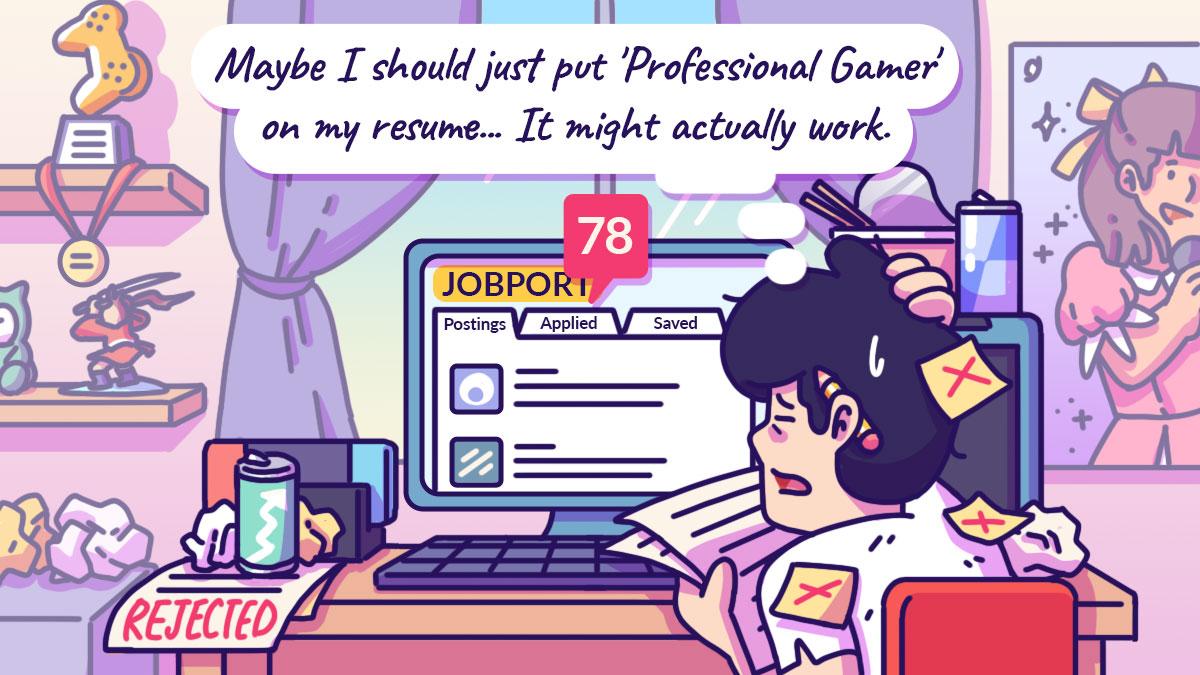Unless one is getting married, moving out alone in Singapore seems like a radical act of rebellion.In America, young people move out at the typical age of 18. In Singapore, as a result of regulations, one has to wait till they are married, or wait till age 35 before they can purchase a subsidised flat through the Singles Scheme.That means waiting twice as long as the average American to get their own space. So how much is freedom worth to Singapore’s millennials?
Singapore and sky-high rent
When the topic of renting is brought up, the common refrain is that it makes little sense to fork out money for rent every month. It should be used to pay a mortgage.
All the signs point to buying property instead of leasing it from someone else as the more economical and sensible choice.
Renting is a waste of money, so they say.
But there are people in Singapore who have made a compromise for independence and freedom: living further away in less popular neighbourhoods for lesser rent but a longer commute. Think of places like Yishun, the far West, or basically anywhere that’s an hour or more away from one’s workplace – not the more central heartland locales such as Bishan, Ang Mo Kio or Kallang.
For Wu Sheng, 32 this year, this living arrangement is more than satisfactory for him. For the last 10 years, he’s rented the same room in Eunos and commutes to Queenstown in his job as a preschool teacher. And there’s nothing he would change about it.
Escaping rough conditions
At 21, Wu Sheng’s father passed away from lung cancer. Prior to this, his father failed to indicate in his will that the flat would be passed on to his children – which proved to complicate things after his death.
“My mother, who was separated from my dad, came back and claimed the flat, then sold it away,” he told me. “Then she ran off with the money and ditched my brother and I.”
Bringing up his mother’s abusive nature, Wu Sheng decided against sharing a living space with her and instead turned to his grandfather. But within a year of moving in, Wu Sheng’s grandfather passed away. To make things worse, Wu Sheng’s aunts swooped in and sold the flat as well.
Despite life’s curve balls, Wu Sheng wasn’t completely at a loss. As a preschool teacher, he found options he wouldn’t have if he had been unemployed or still studying.
“Luckily, by then, I was already working and earning an income,” he said. “I was able to rent a common room, and fortunately, I found a really nice landlord who accepted my cats.”

He moved to Eunos then, with four cats in tow, and never looked back. Today, he lives with two other housemates in his landlord’s landed property, and also shares the space with his landlord’s family.
Rent is $800 a month, inclusive of utility bills, air-conditioning, and Wi-Fi. “I can cook and do laundry too,” he added.
But $800 is no small amount, and it doesn’t surprise me when he mentions that it affects expenses and reduces social interaction by quite a bit. “I don’t earn much as a preschool teacher, and I don’t save as much as other singles in my age group,” he revealed. “I can’t afford to go out drinking at bars, meeting up, or shopping with friends. So I’m very careful about my spending.”
Despite this, Wu Sheng maintains his optimism about the situation, and seems to believe the payoff, ultimately, is acceptable. Even if his commute takes about an hour or more.
“It’s worth it, considering the abuse I suffered before,” he responded. “I needed to take care of my own mental health, and I was definitely feeling healthier being away from a toxic environment.”
$800 is fair game for a person looking to find their own space and maintain sanity. And Wu Sheng is not the only one.
According to this 2018 article, plenty other millennials are flocking towards alternative living options, including co-living spaces that are on the rise in Singapore. While co-living spaces don’t offer as much privacy, with large communal areas set up, it’s still similar to sharing a condo or a flat with other tenants.
And based on
last year’s population trend report from the Department of Statistics, 28% of people aged below 35 are either living on their own or with housemates in a shared property (likely categorised as ‘Others’). While it pales in comparison to the percentage of married couples living in BTO flats, it’s still a sizeable group.
Another Singaporean, who declined to be named, rents a condo with four other people and pays $650 a month for rent. He lives in Jurong West, having moved from Little India, and notes that his commute has lengthened from a mere 15 minutes to 45 minutes.
“I moved because my family was rough,” he revealed. “But I’m no longer in contact with them. Even if it’s tiring, it’s worth my sanity.”
Moving out just because I can
But while it’s not quite a lifestyle choice (more of a necessity), there are others who made the choice to live on their own just because they can.
Donna, 28 this year, recently moved into a place of her own despite having the option to still live with her father and younger sister.
Her new home is a shared condo with two other flatmates, where she occupies a part of the living room that’s been walled off into a third room. She pays $850 a month for rent, and is only just getting used to her newfound freedom.
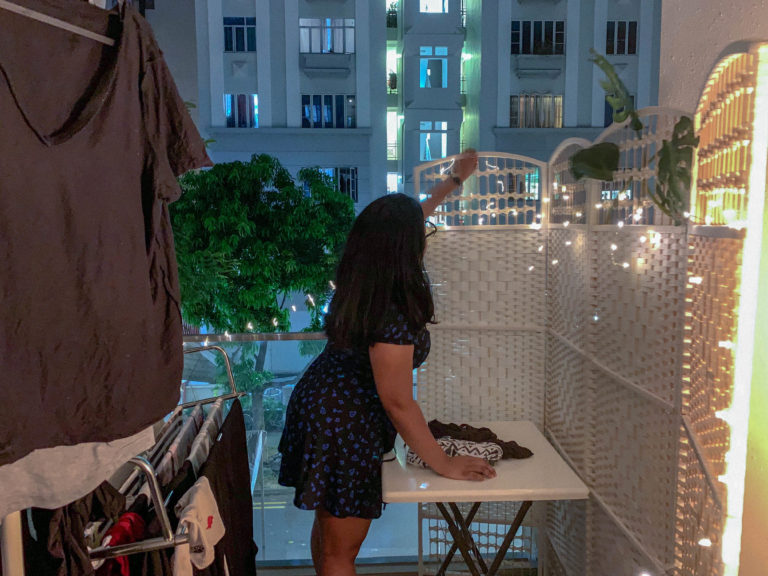
At 28, I felt it was time,” she said. “I can afford it, and I want to wake up every day and feel like it’s a gift. The first couple of weeks I woke up here, I felt like, “Why am I not depressed?” I think that’s very important and freeing.”
While hunting for a suitable place, Donna set some ground rules for herself to find the right living option, such as not letting it go beyond “a third of my salary.”
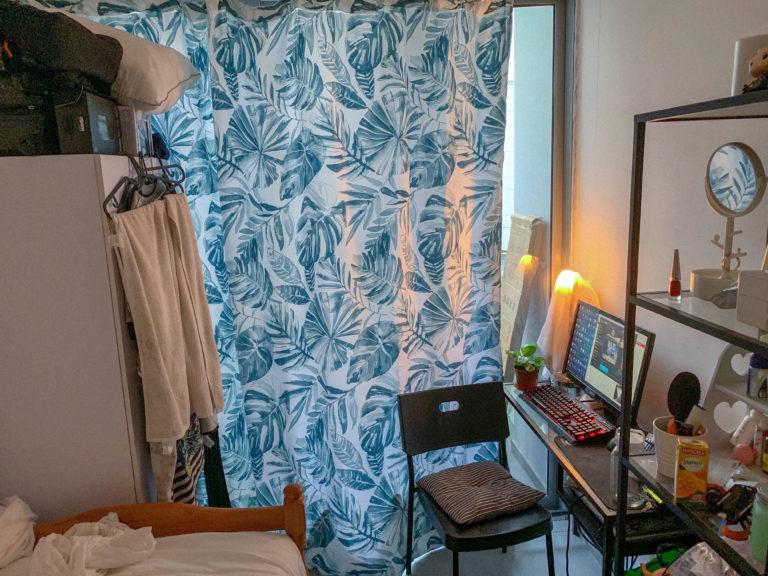
“Anything can happen at any time, so I want to still have my
emergency fund prepared,” she said. “And so far, all of this is worth it – this level of security is something I never got to experience growing up, so I want to give that to myself.”
From renting a room in a landed property to sharing a condo with strangers, the subset of Singaporeans who have decided to find a place of their own without waiting for BTO flats all seem to agree that the payoff is worth it.
Even if money for rent goes into a vacuum – “wasted” – in the end, money is there to help one achieve personal goals and provide for better quality of life, whether it’s having some privacy or a safe space.
And as long as it’s within budget, why not?
For more on the topic of renting a place and living on your own, listen to our first podcast episode for more advice and anecdotes! He moved to Eunos then, with four cats in tow, and never looked back. Today, he lives with two other housemates in his landlord’s landed property, and also shares the space with his landlord’s family.
Rent is $800 a month, inclusive of utility bills, air-conditioning, and Wi-Fi. “I can cook and do laundry too,” he added.
But $800 is no small amount, and it doesn’t surprise me when he mentions that it affects expenses and reduces social interaction by quite a bit. “I don’t earn much as a preschool teacher, and I don’t save as much as other singles in my age group,” he revealed. “I can’t afford to go out drinking at bars, meeting up, or shopping with friends. So I’m very careful about my spending.”
Despite this, Wu Sheng maintains his optimism about the situation, and seems to believe the payoff, ultimately, is acceptable. Even if his commute takes about an hour or more.
“It’s worth it, considering the abuse I suffered before,” he responded. “I needed to take care of my own mental health, and I was definitely feeling healthier being away from a toxic environment.”
$800 is fair game for a person looking to find their own space and maintain sanity. And Wu Sheng is not the only one.
According to this 2018 article, plenty other millennials are flocking towards alternative living options, including co-living spaces that are on the rise in Singapore. While co-living spaces don’t offer as much privacy, with large communal areas set up, it’s still similar to sharing a condo or a flat with other tenants.
And based on last year’s population trend report from the Department of Statistics, 28% of people aged below 35 are either living on their own or with housemates in a shared property (likely categorised as ‘Others’). While it pales in comparison to the percentage of married couples living in BTO flats, it’s still a sizeable group.
Another Singaporean, who declined to be named, rents a condo with four other people and pays $650 a month for rent. He lives in Jurong West, having moved from Little India, and notes that his commute has lengthened from a mere 15 minutes to 45 minutes.
“I moved because my family was rough,” he revealed. “But I’m no longer in contact with them. Even if it’s tiring, it’s worth my sanity.”
He moved to Eunos then, with four cats in tow, and never looked back. Today, he lives with two other housemates in his landlord’s landed property, and also shares the space with his landlord’s family.
Rent is $800 a month, inclusive of utility bills, air-conditioning, and Wi-Fi. “I can cook and do laundry too,” he added.
But $800 is no small amount, and it doesn’t surprise me when he mentions that it affects expenses and reduces social interaction by quite a bit. “I don’t earn much as a preschool teacher, and I don’t save as much as other singles in my age group,” he revealed. “I can’t afford to go out drinking at bars, meeting up, or shopping with friends. So I’m very careful about my spending.”
Despite this, Wu Sheng maintains his optimism about the situation, and seems to believe the payoff, ultimately, is acceptable. Even if his commute takes about an hour or more.
“It’s worth it, considering the abuse I suffered before,” he responded. “I needed to take care of my own mental health, and I was definitely feeling healthier being away from a toxic environment.”
$800 is fair game for a person looking to find their own space and maintain sanity. And Wu Sheng is not the only one.
According to this 2018 article, plenty other millennials are flocking towards alternative living options, including co-living spaces that are on the rise in Singapore. While co-living spaces don’t offer as much privacy, with large communal areas set up, it’s still similar to sharing a condo or a flat with other tenants.
And based on last year’s population trend report from the Department of Statistics, 28% of people aged below 35 are either living on their own or with housemates in a shared property (likely categorised as ‘Others’). While it pales in comparison to the percentage of married couples living in BTO flats, it’s still a sizeable group.
Another Singaporean, who declined to be named, rents a condo with four other people and pays $650 a month for rent. He lives in Jurong West, having moved from Little India, and notes that his commute has lengthened from a mere 15 minutes to 45 minutes.
“I moved because my family was rough,” he revealed. “But I’m no longer in contact with them. Even if it’s tiring, it’s worth my sanity.” At 28, I felt it was time,” she said. “I can afford it, and I want to wake up every day and feel like it’s a gift. The first couple of weeks I woke up here, I felt like, “Why am I not depressed?” I think that’s very important and freeing.”
While hunting for a suitable place, Donna set some ground rules for herself to find the right living option, such as not letting it go beyond “a third of my salary.”
At 28, I felt it was time,” she said. “I can afford it, and I want to wake up every day and feel like it’s a gift. The first couple of weeks I woke up here, I felt like, “Why am I not depressed?” I think that’s very important and freeing.”
While hunting for a suitable place, Donna set some ground rules for herself to find the right living option, such as not letting it go beyond “a third of my salary.”
 “Anything can happen at any time, so I want to still have my emergency fund prepared,” she said. “And so far, all of this is worth it – this level of security is something I never got to experience growing up, so I want to give that to myself.”
From renting a room in a landed property to sharing a condo with strangers, the subset of Singaporeans who have decided to find a place of their own without waiting for BTO flats all seem to agree that the payoff is worth it.
Even if money for rent goes into a vacuum – “wasted” – in the end, money is there to help one achieve personal goals and provide for better quality of life, whether it’s having some privacy or a safe space.
And as long as it’s within budget, why not? For more on the topic of renting a place and living on your own, listen to our first podcast episode for more advice and anecdotes!
“Anything can happen at any time, so I want to still have my emergency fund prepared,” she said. “And so far, all of this is worth it – this level of security is something I never got to experience growing up, so I want to give that to myself.”
From renting a room in a landed property to sharing a condo with strangers, the subset of Singaporeans who have decided to find a place of their own without waiting for BTO flats all seem to agree that the payoff is worth it.
Even if money for rent goes into a vacuum – “wasted” – in the end, money is there to help one achieve personal goals and provide for better quality of life, whether it’s having some privacy or a safe space.
And as long as it’s within budget, why not? For more on the topic of renting a place and living on your own, listen to our first podcast episode for more advice and anecdotes!
